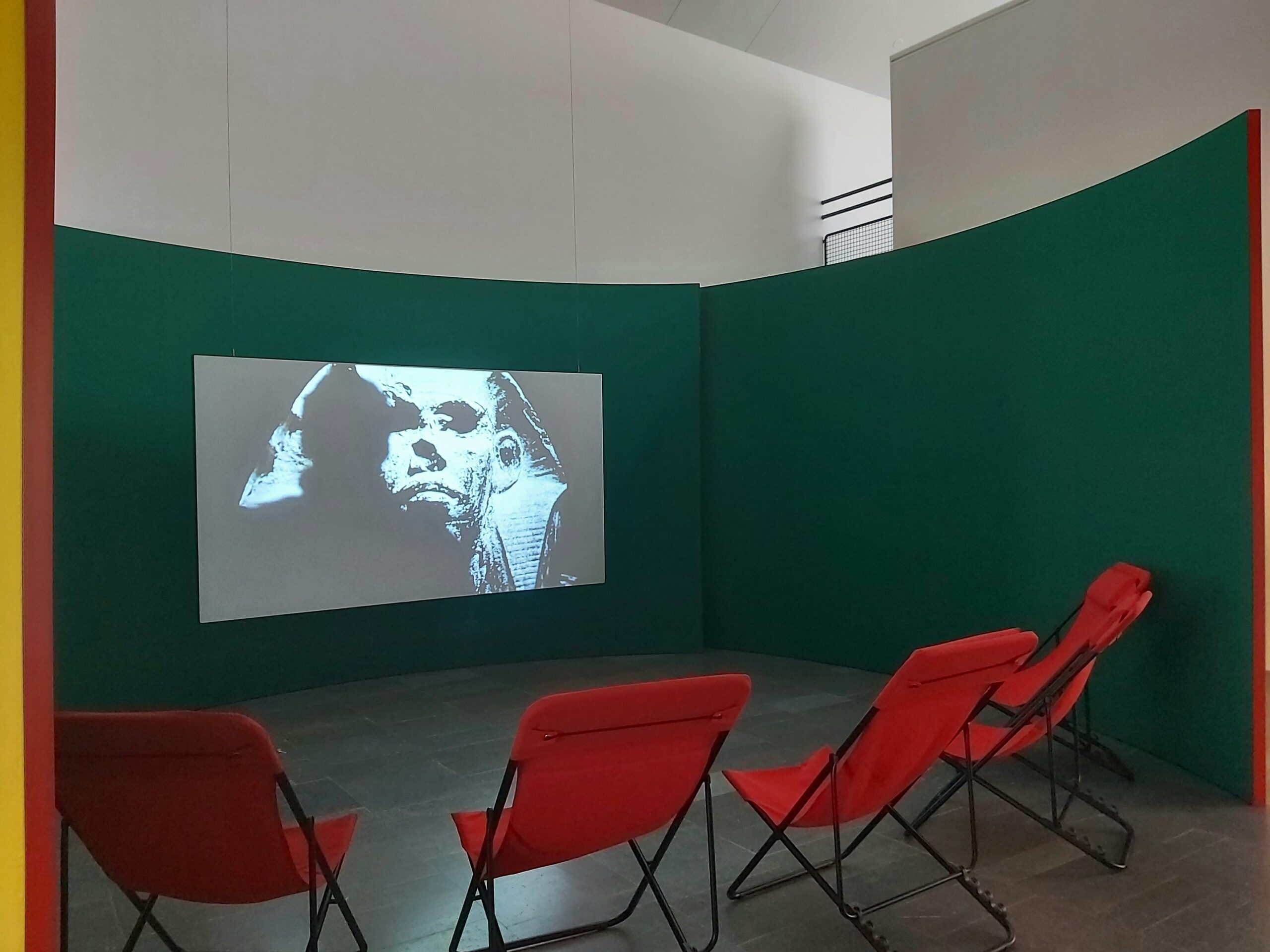Avant-Garde and Liberation: Contemporary Art and Decolonial Modernism
Vincent Meessen participates with a site-specific installation of Juste un Mouvement in this group exhibition curated by Christian Kravagna and Matthias Michalka at MUMOK, Vienna
07/06 – 22/09/2024
The exhibition Avant-Garde and Liberation highlights the significance of global modernism for contemporary art. It raises questions of the political circumstances that move contemporary artists to resort to those non-European avant-gardes that formed as a counterpart of the dominant Western modernism from the 1920s to the 1970s. What are the potentials artists see in the ties to decolonial avant-gardes in Africa, Asia, and the “Black Atlantic” region, to take a stand against current forms of racism, fundamentalism, or neocolonialism? Which artistic methods are employed when addressing subjects such as the encroachment on personal liberties and social cohesion by drawing on seminal anticolonial and antiracist positions of the early to mid-twentieth century?
Showcasing several works by more than twenty-five artists from South Asia, Africa, Europe, and America, Avant-Garde and Liberation offers a glimpse of global modernism through the prism of their pertinence for contemporary art. In the complex tangle of past and present, the exhibition reflects on questions of temporality as well as the possibility of engaging with old and new liberation movements.
Artist and filmmaker Vincent Meessen (1971, Baltimore, USA) combines criticism of colonial models used to write history with an affective attention to certain disruptive actions of the past. While investigating political movements, projects, artworks, and essays that confronted the political and social contradictions of their times, Meessen develops installations, publications, and films that challenge viewers to question the forms of silencing faced by such movements, and about the factors that keep them pertinent, even today.
In a number of his works, the objects of interest are linked to the work of Situationist International, the revolutionary movement (active between 1957 and 1972), which gave rise to an integral criticism of society. Aware that most of the history of that movement concentrates on its supposed French focus, captained by the figure and writings of Guy Debord, Meessen investigates gaps in that history, such as the existence of situationist direct influence on the African continent and in the Caribbean. It was while researching this area that the artist came across a photograph picturing the young, militant, Senegalese philosopher Omar Blondin Diop reading the last edition of the magazine Internationale Situationniste. This document became the catalyst for the film Juste un Mouvement [Just a Movement], which will be shown at MUMOK inside the spiral-shaped installation The Sun Will Always Rise.
Omar Blondin Diop’s entered the cinema history with his appearance in the film La Chinoise (1967), by Jean Luc-Godard, where he played himself teaching a class on Marxism and Maoism to a group of young people, who have gathered in an apartment to prepare a transition from student movement into armed action. Meessen appropriates Omar’s participation as an opportunity to revisit a method used by Godard at the time – making a film as a process of registering the making of another film –, moving it to present-day Dakar, Senegal. In this way, he both pays tribute to and criticizes Godard’s 1967 film, inverting its geographical and political focus. In Juste un Mouvement, history and cinema are experienced as one continuous polyphonic movement, replete with spiral overlaps, throughout which a narrative is woven by Omar’s friends and family, reunited today to remember his ideas and attitudes, and to demand the truth about his political imprisonment and death during the government of Léopold Sédar Senghor (poet, advocate of the Négritude movement and the first president of Senegal after the Independence, who ruled a single-party regime from 1960 to 1981).
Artists: Mathieu Kleyebe Abonnenc, Omar Ba, Radcliffe Bailey, Yto Barrada, Mohamed Bourouissa, Diedrick Brackens, Serge Attukwei Clottey, william cordova, Atul Dodiya, Robert Gabris, Jojo Gronostay, Leslie Hewitt, Iman Issa, Janine Jembere, patricia kaersenhout, Belinda Kazeem-Kamiński, Zoe Leonard, Vincent Meessen, The Otolith Group, Fahamu Pecou, Cauleen Smith, Maud Sulter, Vivan Sundaram, Moffat Takadiwa
